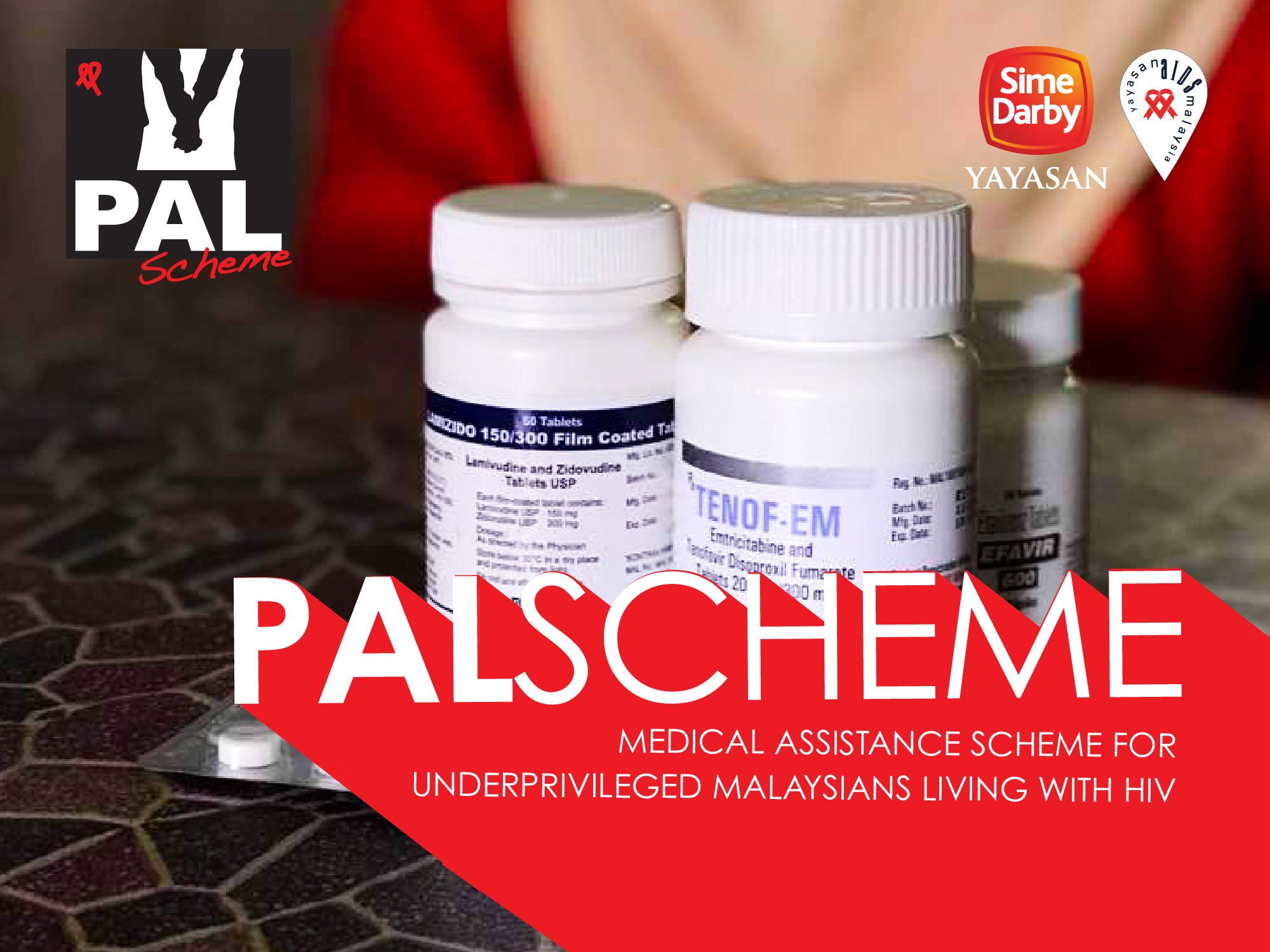
PAL Scheme
The PAL Scheme, which was launched in 1998, provides free second-line medication to underprivileged Malaysians living with HIV the opportunity to undergo Antiretroviral Therapy (ART) with the objective of helping them to prolong and improve their quality of life.
Patients who require second or third-line medication due to advancing disease progression are currently not supported by the government. The situation is especially dire for patients from poor household income who would default on their treatment simply because they can’t afford to buy the medication that runs into thousands of ringgit per prescription.
To date, PAL has supported approximately 173 underprivileged PLHIV in Malaysia to have continuous access to medication and a second chance at life.
Programme partners- • Sime Darby Foundation
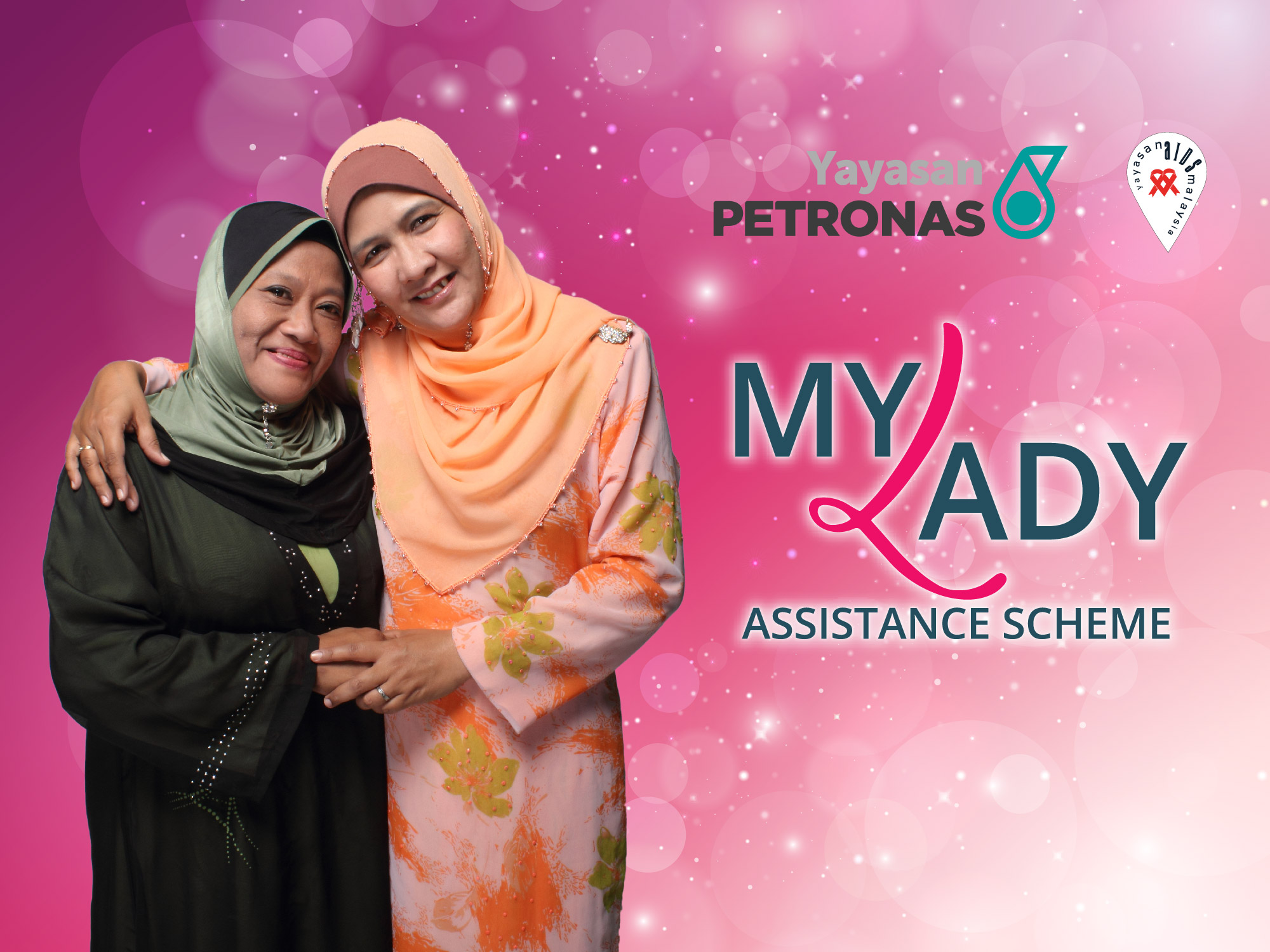
MyLady Assistance Scheme
The MyLady Assistance Scheme is a special empowerment programme that provides women living with HIV from underprivileged background the much-needed break and opportunity to help themselves.
The focus of the scheme is to aid women and single mothers living with HIV by equipping them with the knowledge and skill sets to start small-scale businesses. The scheme also offers zero interest micro-credit loans of RM 5,000. The ultimate aim of the programme is to put these women on the right path to self-reliance and greater financial independence.
Programme partners- Yayasan Petronas
- Ministry of Women, Family and Community Development
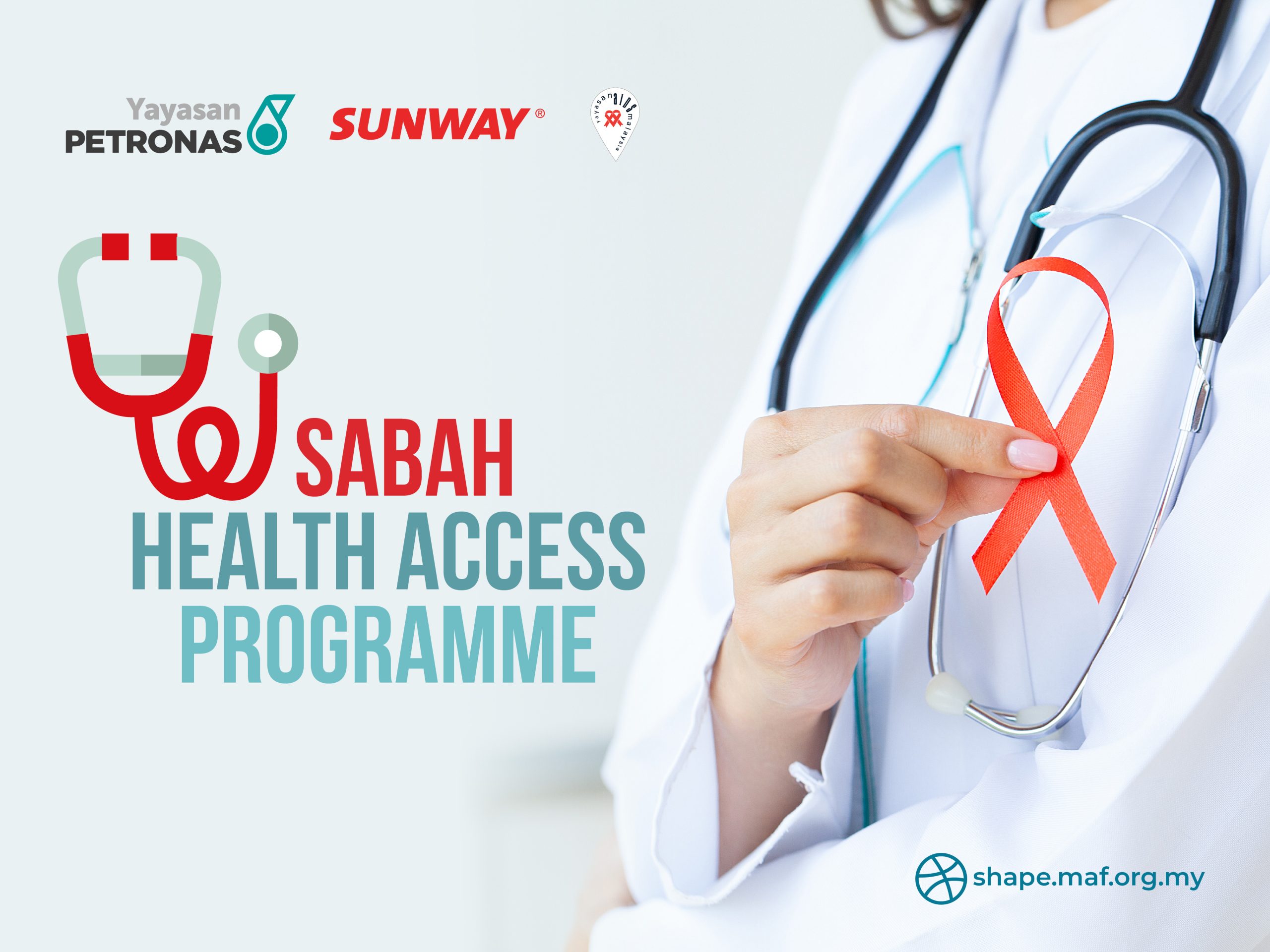
Special project in Sabah: Sabah Health Access Programme (SHAPE)
Sabah Health Access Programme (SHAPE) is another initiative by Malaysian AIDS Foundation with the aim of helping underprivileged patients from Sabah rural interior access treatment at government health facilities. A pilot project was successfully launched in Sandakan and has since benefited more than 200 beneficiaries. The programme awards cash incentive to qualified beneficiaries to help cover the high cost of traveling and other logistic expenses related to their hospital appointment in town. Priority is given to people living with HIV, but since 2021 SHAPE has extended it’s service to those diagnose with Thalassemia, paediatric illness, non-communicable diseases, end-stage renal disease and other chronic diseases.

Special project in Sarawak: Sarawak Health Access Programme (SHAPE)
Sarawak Health Access Programme (SHAPE) is another initiative by Malaysian AIDS Foundation with the aim of helping underprivileged patients from Sarawak rural interior access treatment at government health facilities. A pilot project was successfully launched in Sandakan and has since benefited more than 200 beneficiaries. The programme awards cash incentive to qualified beneficiaries to help cover the high cost of traveling and other logistic expenses related to their hospital appointment in town. Priority is given to people living with HIV, but since 2021 SHAPE has extended it’s service to those diagnose with Thalassemia, paediatric illness, non-communicable diseases, end-stage renal disease and other chronic diseases.
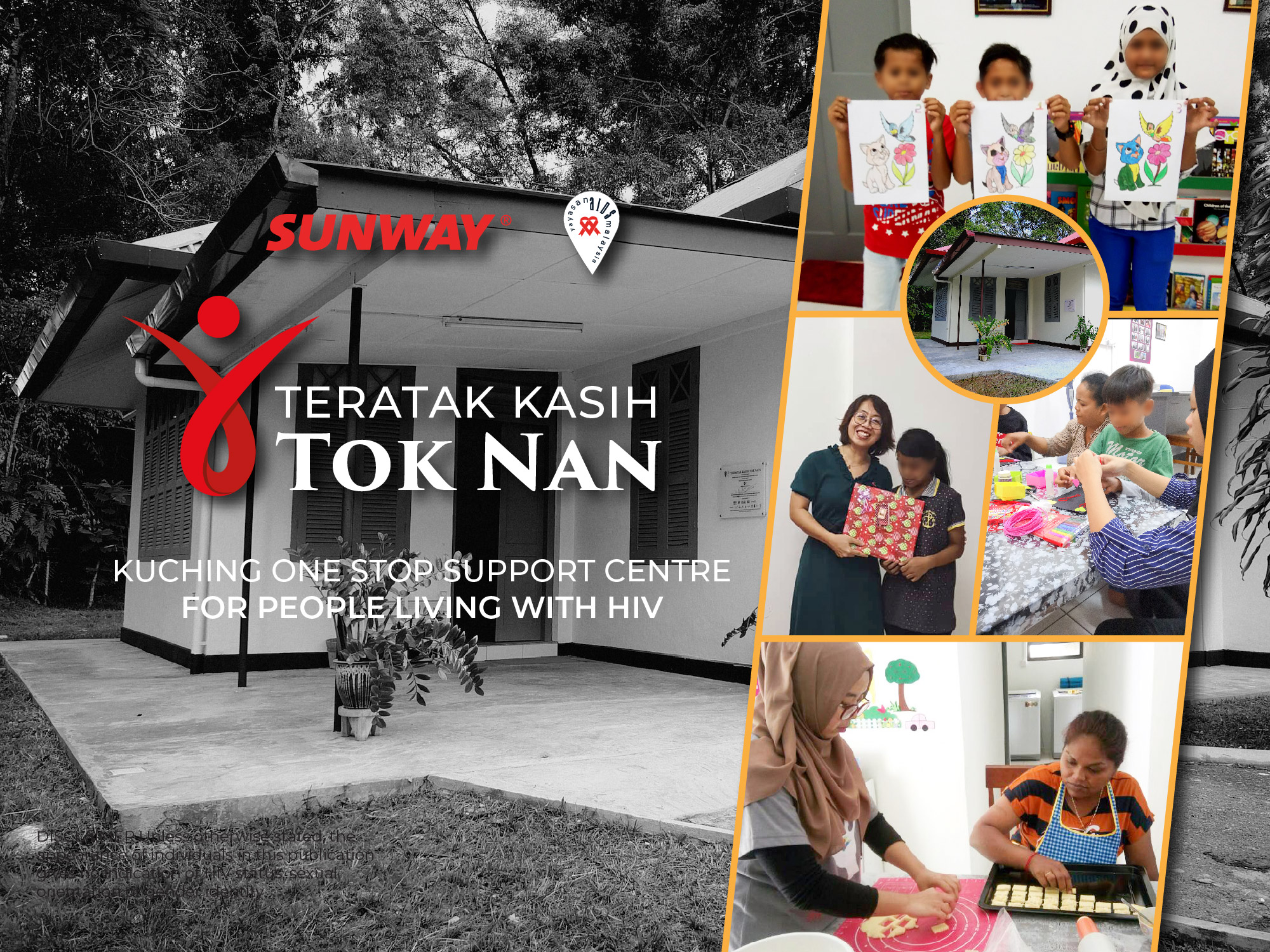
Special Project in Sarawak: Teratak Kasih Tok Nan
Support by MAF is also extended to Sarawak through collaboration with the State Government of Sarawak with the establishment of Teratak Kasih Tok Nan, a halfway home for People Living with HIV, named after Sarawak’s fifth Chief Minister, the late YAB Datuk Patinggi Tan Sri Datuk Amar Haji Adenan Satem.
Teratak Kasih Tok Nan provides overnight lodging facility as well as travel subsidy for underprivileged HIV patients to ensure that they continue to get the care and treatment they need. The home is operated by our partner organisation in Kuching, Sarawak AIDS Concern Society.
HIV patients in Sarawak, especially those from the rural hinterlands, have to travel far to seek treatment. Some have to journey more than 12 hours just to access treatment which result in many being discouraged from seeking treatment. Having this halfway home ensures the continuous flow of patients seeking treatment in Sarawak.
The Centre enjoys the patronage of YBhg Datin Patinggi Datuk Amar Hajah Jamilah Haji Anu, who continues to carry on her late husband’s work to help Sarawakians living with HIV, especially women and children, in getting access to treatment, care and support.
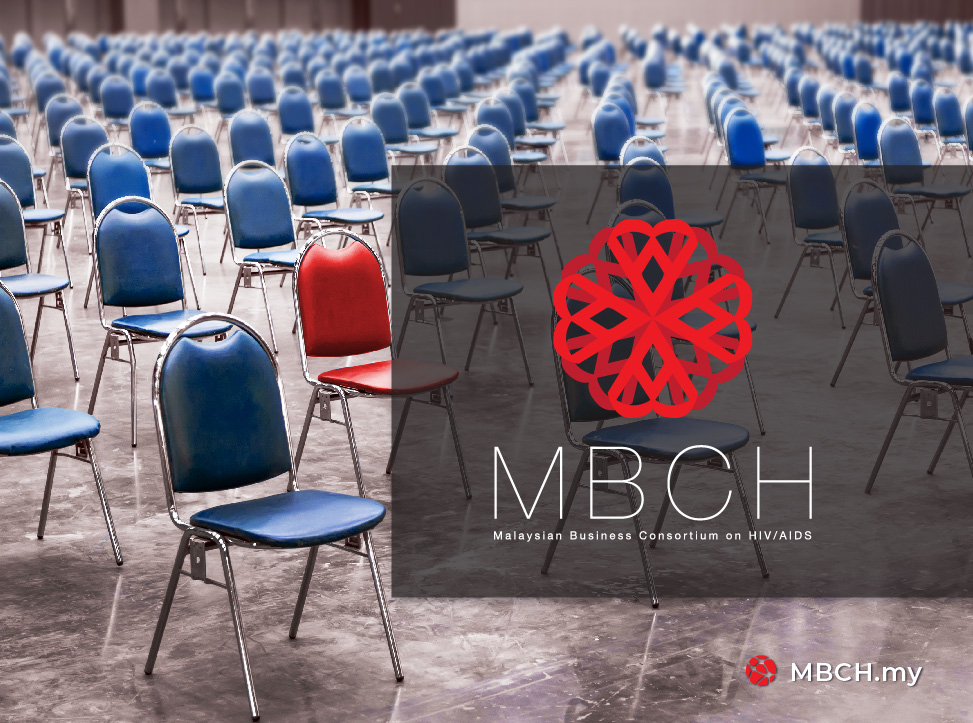
The Malaysian Business Consortium on HIV/AIDS (MBCH)
Be part of the Malaysian Business Consortium on HIV/AIDS (MBCH), a corporate membership programme that brings together local corporate companies in Malaysia under the single agenda of promoting workplace protection policy and developing effective HIV/AIDS workplace programmes. MBCH is a proactive measure that helps to mitigate the negative impact of HIV/AIDS at the workplace and also a step forward towards the creation of a better and safer workplace environment for employees.
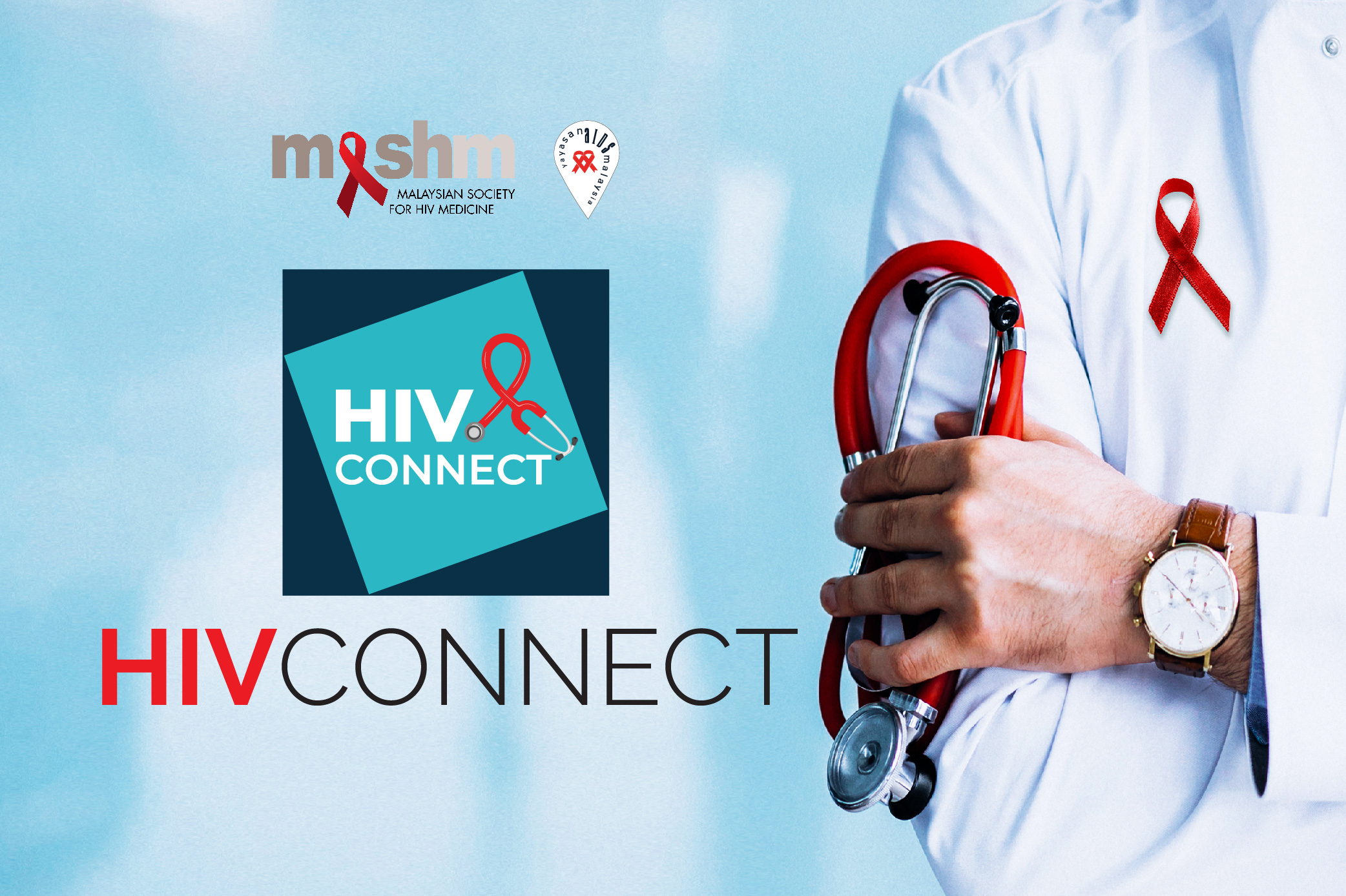
HIV Connect
A self-paced online training programme for General Practitioner. There are 2 online modules covering the basics of HIV/AIDS, Pre and Post Exposure Prophylaxis for HIV/AIDS and Sexually Transmitted Infections (STIs). The modules are authored by a distinguished panel of HIV specialists and members of the Malaysian Society of HIV Medicine (MAHSM).
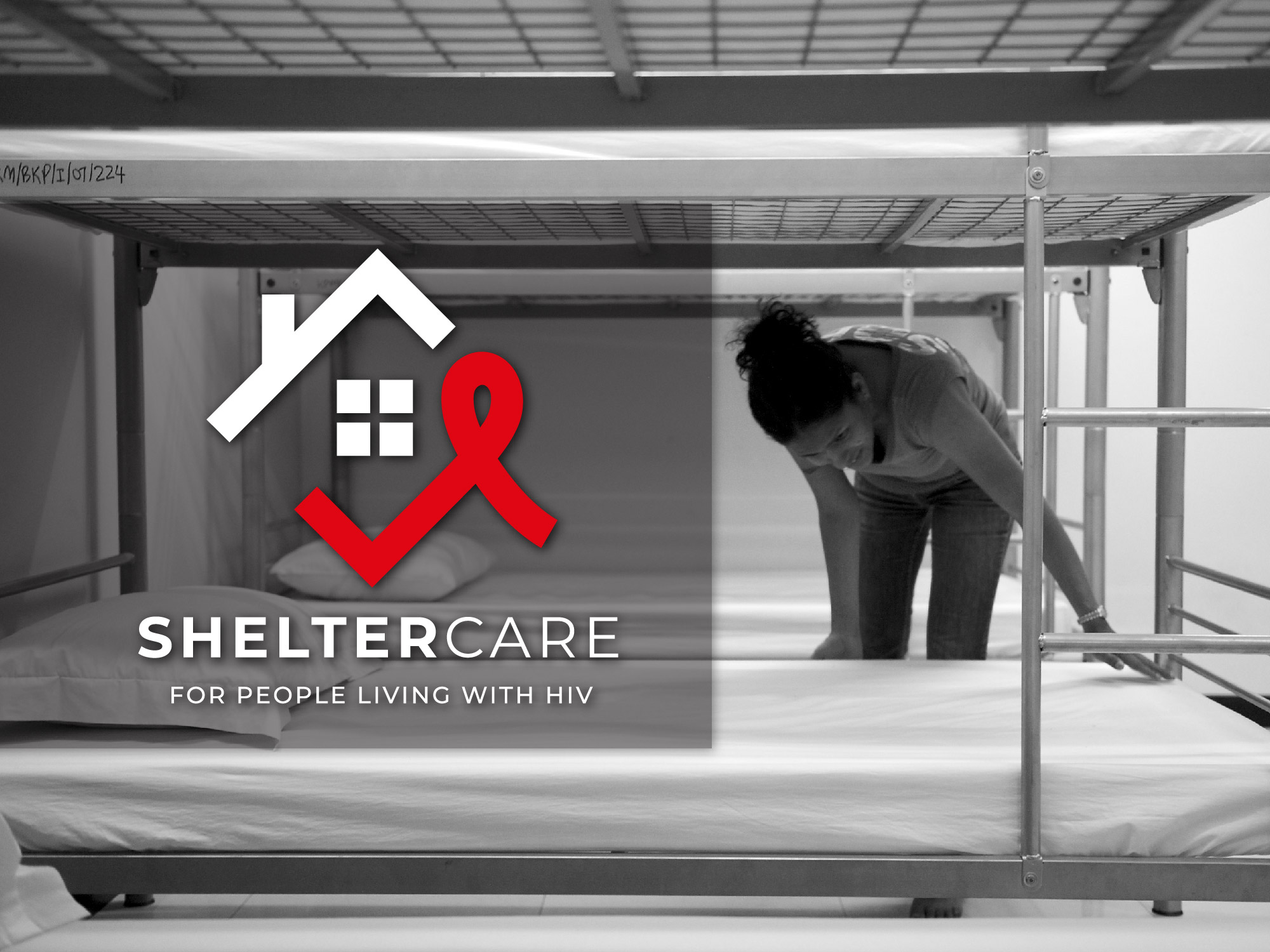
Shelter Care for People Living with HIV
The Malaysian AIDS Foundation funded, and in some cases, helped to set up a number of shelter home facilities for People Living with HIV in Malaysia who are often bereft of any support from their family members or friends. They also face unbearable stigma and discrimination from their surrounding community and society at large.
Our shelter home is the place where they seek refuge as we provide them with a residential setting conducive for emotional and physical well-being. Services provided include basic nursing care, palliative care, medical referrals and bereavement counselling, psychosocial as well as spiritual support service.
The lists of shelters that have received direct funding from MAF are:- • Rumah Sahabat, Kota Bahru, Kelantan
- • Faith Home, Kuala Lumpur
- • PKKUM Shelter, Kuala Lumpur
- • Rumah CAKNA Terengganu
- • Rumah WAKE
Some of the shelter homes also support children living with HIV. They basically spend their entire childhood there and know of no other life outside the shelter.
